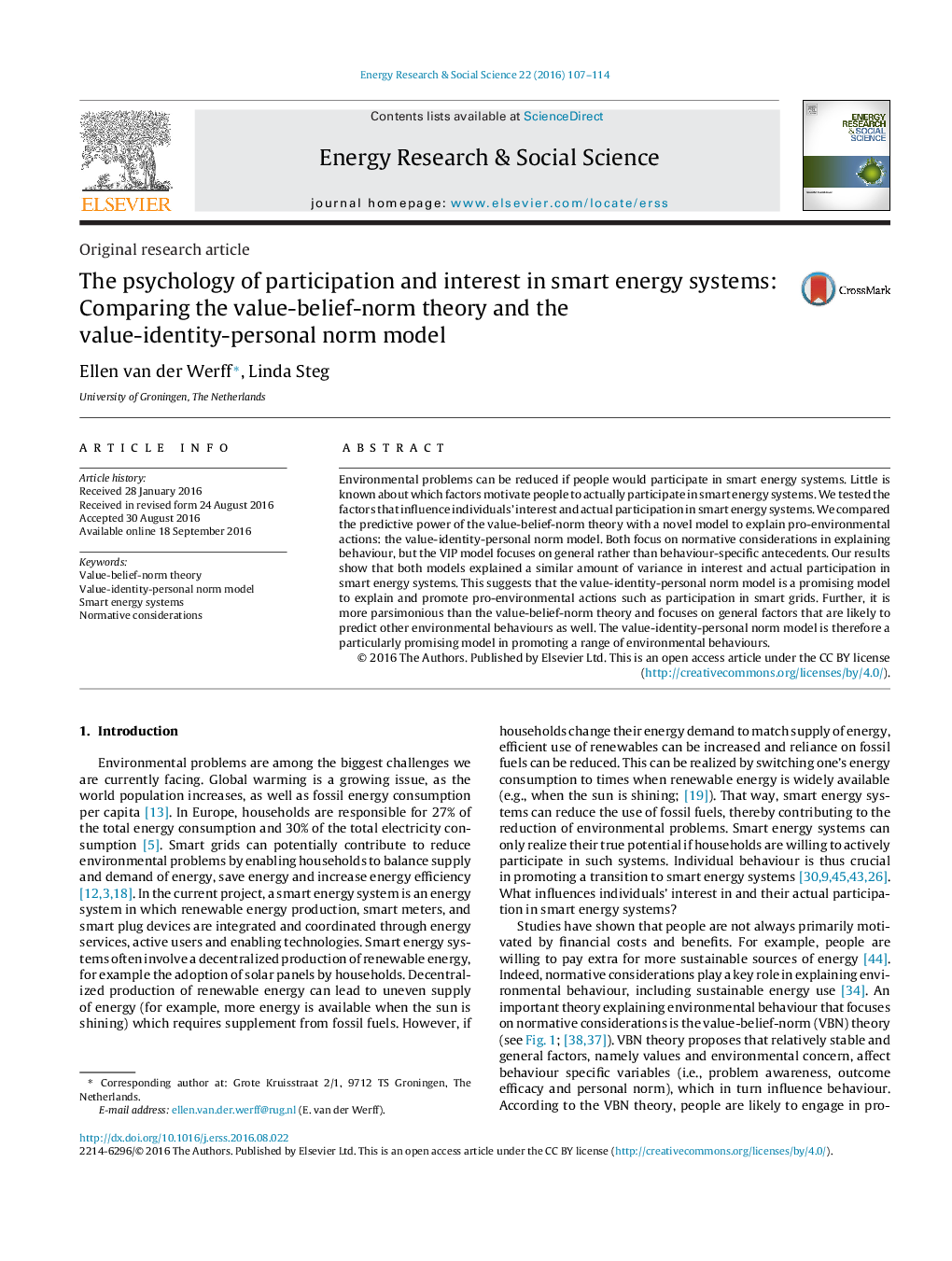| Article ID | Journal | Published Year | Pages | File Type |
|---|---|---|---|---|
| 6464150 | Energy Research & Social Science | 2016 | 8 Pages |
â¢The value-belief-norm theory predicts participation in smart energy systems.â¢The value-identity-personal norm model predicts participation in smart energy systems.â¢Normative considerations predict interest as well as actual participation.â¢Actual participation is predicted by financial and comfort considerations.
Environmental problems can be reduced if people would participate in smart energy systems. Little is known about which factors motivate people to actually participate in smart energy systems. We tested the factors that influence individuals' interest and actual participation in smart energy systems. We compared the predictive power of the value-belief-norm theory with a novel model to explain pro-environmental actions: the value-identity-personal norm model. Both focus on normative considerations in explaining behaviour, but the VIP model focuses on general rather than behaviour-specific antecedents. Our results show that both models explained a similar amount of variance in interest and actual participation in smart energy systems. This suggests that the value-identity-personal norm model is a promising model to explain and promote pro-environmental actions such as participation in smart grids. Further, it is more parsimonious than the value-belief-norm theory and focuses on general factors that are likely to predict other environmental behaviours as well. The value-identity-personal norm model is therefore a particularly promising model in promoting a range of environmental behaviours.
